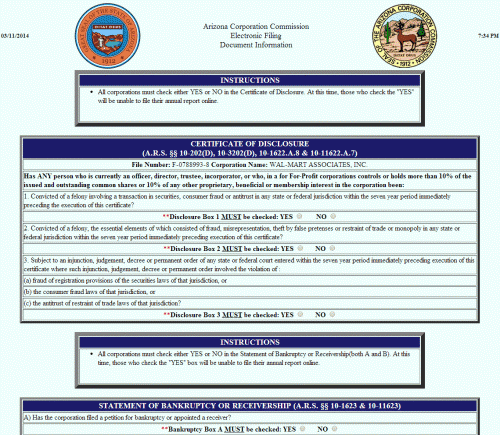The $10.10 minimum wage discussion has gotten a lot of attention. But in 2011 only 3.8 million workers made at or below the minimum wage, and of these, at least half earn substantially more in reality through tips.
Obama's announcement yesterday that he wanted to substantially change the way salaried workers will likely have far more negative impacts on employment than his minimum wage proposals.
President Barack Obama is expected to order a rule change this week that would require employers to pay overtime to a larger number of salaried workers, two people familiar with the matter said.
Currently, many businesses aren't required to pay overtime to certain salaried workers if they earn more than $455 a week, a level that was set in 2004 and comes to roughly $24,000 a year. The White House is expected to direct the Labor Department to raise that salary threshold, though it is unclear by how much.
Ross Eisenbrey, vice president of the liberal Economic Policy Institute, and Jared Bernstein, a former White House economist, recently proposed the limit be increased to $984 a week, or roughly $50,000 a year.
"That would mean between five- and 10-million people could be affected, but they might choose a lower number," Mr. Eisenbrey said about the White House plans.
5-10 million is potentially 3x or more the people affected by a minimum wage change. But in some sense, this still underestimates the impact. Here is one example. Last year the average starting salary of college graduates is about $45,000. The median is likely lower. This means that over half of all college graduates going into the work force will be taking hourly jobs that used to be salaried. Teachers will be hourly. Budget analysts will be hourly. Etc.
So all these folks are saying - Yeah! I get overtime! Wrong. They will be eligible for overtime. But companies will quickly restructure their work processes to make sure no one works overtime. And since their new hires are working just a straight 40 hours (with mandatory unpaid lunch break time in CA), they will likely pay less. If I am paying $40,000 a year for someone who will work extra hours for me, I am not going to pay that amount to someone just punching a time clock. And the whole psychological relationship is changed - a salaried person is someone on the management team. A person punching a timeclock may not be treated the same way.
Further, when someone gets switched from salary to hourly, they lose a minimum pay guarantee. When I get a $3,500 a month offer, I know that no matter how slow things are, until I am fired I get $3500 a month. There is a floor on my earnings. As an hourly worker, my hours can be adjusted up or down constantly. There is no floor at all.
Oh, and by the way, remember Obamacare? The PPACA penalizes companies who do not provide a health plan that meets certain (expensive) criteria. But that penalty is not applied for workers who are "part-time" or work less than 30 hours a week. Salaried workers are automatically full time. But once you convert all those people to hourly and make sure they are working no more than 40 hours a week, is it really so large a step to getting them under 30 hours a week?
PS- Well, for those who think schools assign too much homework, this could well be the end of homework. The most dangerous possible thing with hourly workers is to give them the ability to assign themselves unlimited overtime. Teachers could do this at home with grading papers. If I were a school, I would ban teachers from doing any grading or schoolwork prep at home -- after all, it's hourly and probably overtime and they could work unlimited hours at home and how would you get it under control? The only way to manage it would be to ban it entirely.
PPS- What about travel? Would you ever let workers paid hourly travel? You would have to pay all the travel time and maybe part of the hotel time and there would be huge potential for ending up with overtime bills so better to just ban travel all together. I know this seems knee-jerk to ban something that might impose a lot of extra labor costs seems extreme, but just look at California. In California, employees have the right to a half-hour lunch break without work. They can work through lunch if they choose, but courts have imposed enough onerous reporting standards around this that most companies (like mine) have just banned working through lunch. It is a firing offense in my company, and in many others in CA, to be caught working during lunch. We are going to see the same thing working from home. In fact, we already see this, as there are class actions right now against companies who provided employees with cell phones saying that giving them a cell phone put them "on call" and subject to overtime hours that had to paid at home. Companies are now making it a firing offense to take one's company cell phone home.
Sorry this post is so disorganized, but this initiative caught be by surprise and I have not been thinking about it for very long. I will try to work out a more rigorous article in the next few weeks.




